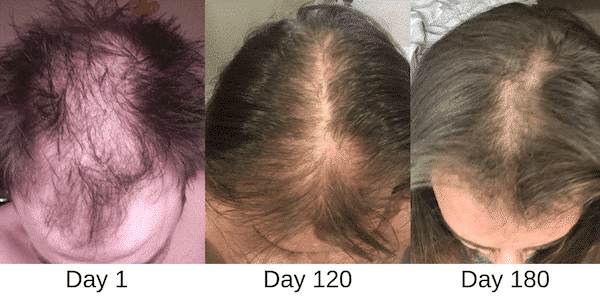
Hair Loss Shocking Facts and How to Prevent It
Whether you’re a man or a woman, you’ve probably experienced hair fall at some point in your life. No matter how old you are, hair follicles can get damaged or destroyed by environmental factors, leaving you with a bald spot. Fortunately, hair loss is entirely reversible, and there are plenty of ways you can take care of your hair without going under the knife. If you’re worried about hair loss, there’s a good chance that’s because of your genetics. Keep reading to learn more about the potential causes, symptoms, and solutions for this common condition.
Are you at risk of hair loss?
Hair loss/ fall is the most common condition that can affect men and women, but it’s most common among men. According to the NIH, more than 50% of men will experience some degree of hair loss by reaching their mid-60s, though the average age at which men lose their hair is closer to 57. Still, the fact remains that about half of all men are at risk of hair fall. Fortunately, you can take steps now to prevent hair loss.
The biological causes of hair loss
Before you start blaming all your hair fall problems on genetics, you should know that there are biological reasons behind baldness. As cells inside the follicle begin to die, they release enzymes that break down the surrounding cells and the hair on the scalp. This results in a miniaturized hair shaft, which can’t hold as much hair and eventually falls out.
Chemical causes of hair loss
While your hair follicles can get damaged by various factors, including the ones listed above, another cause of hair fall is over-processing or over-styling your hair. In addition to damaging your hair, these methods can also permanently alter your hair’s hair fiber and cuticle, making it weaker. If you know that you’re prone to over-processing your hair, you should limit the use of heat tools and avoid relaxing or damaging your hair.
Hair loss as a side effect of medication
There are plenty of medications that can damage your hair, including hormone drugs and chemotherapy treatments. If you’ve undergone any of these treatments, you should consider speaking with your doctor about hair loss. Common side effects of these drugs can be included hair fall and other issues like weight gain, mood swings, and dry skin.
Hair loss as a side effect of illness
If you’ve ever had an illness that caused your immune system to weaken, you may be at an increased risk of hair fall. Common diseases that can cause immunosuppression include HIV/AIDS, cancer treatments like chemotherapy and radiation therapy, and organ transplantation. Because your immune system controls hair growth, it can easily target your hair follicles and damage them. However, this side effect is temporary and may even reverse once the illness has cleared up.
Carrier proteins
If you’ve been diagnosed with a medical condition that temporarily weakens your immune system, you may also be at a higher risk of hair fall. This is because your immune system is responsible for controlling hair growth. Because it’s temporarily weak, your immune system may target your hair follicles and damage them. However, this side effect is temporary. Your hair should grow back after your immune system strength returns to normal.
Biotin
Biotin is a water-soluble vitamin that plays an essential role in the growth and maintenance of hair. If you’ve been diagnosed with a medical condition that weakens your immune system, you may be more likely to lose hair. Because your immune system controls hair growth, it may target your hair follicles and damage them. In addition, increasing your risk of hair fall can also lead to other issues, including hair breakage and coarse hair texture.
Growth factors
One of the main reasons hair fall occurs is that the follicles lose their hair-follicle stem cells. As we age, these stem cells become exhausted and can’t produce as many new cells. This, in turn, results in a miniaturized hair shaft, which can’t hold as much hair and eventually falls out. However, many factors can increase the risk of hair fall and accelerate hair fall rate. These include genetics, medical conditions, and the use of certain medications. Fortunately, these factors are usually preventable, meaning that you can reduce your risk of hair fall. These steps may include limiting your exposure to triggers for hair loss and taking medications as directed by your doctor.
Conclusion
Hair loss is a common condition that can affect men and women, but it’s most common among men. Hair loss is completely reversible, and there are plenty of ways to take care of your hair without going under the knife.